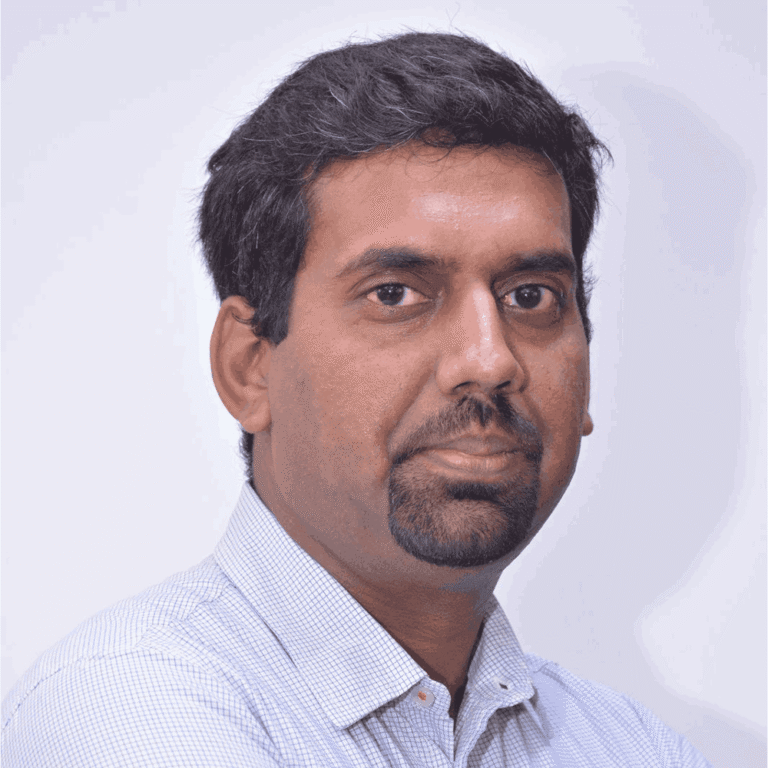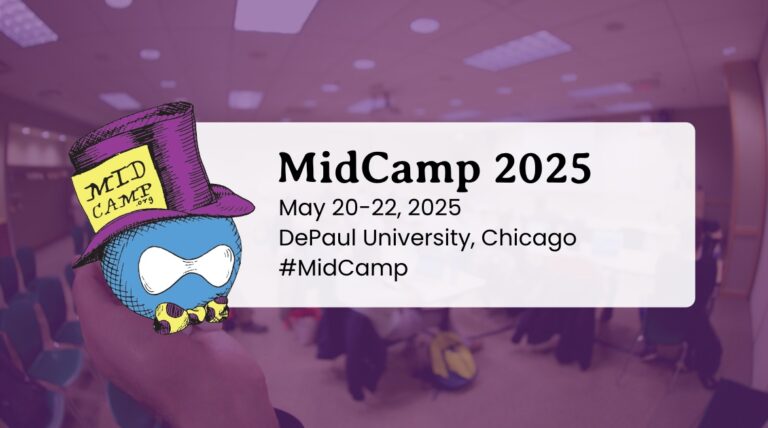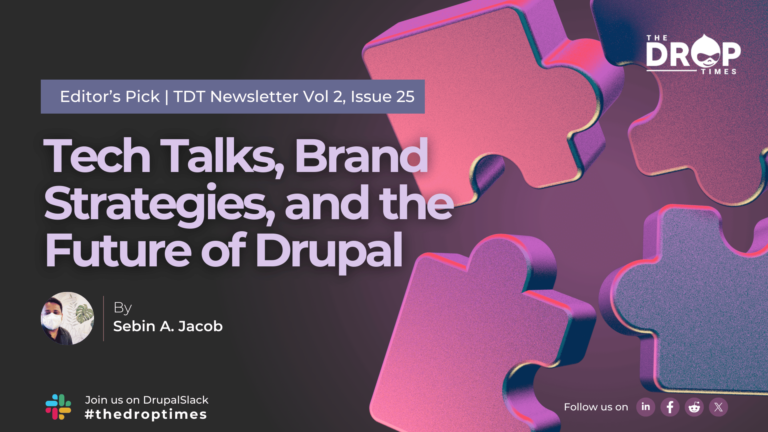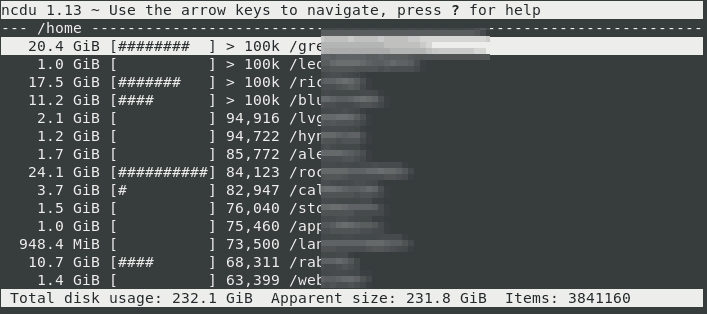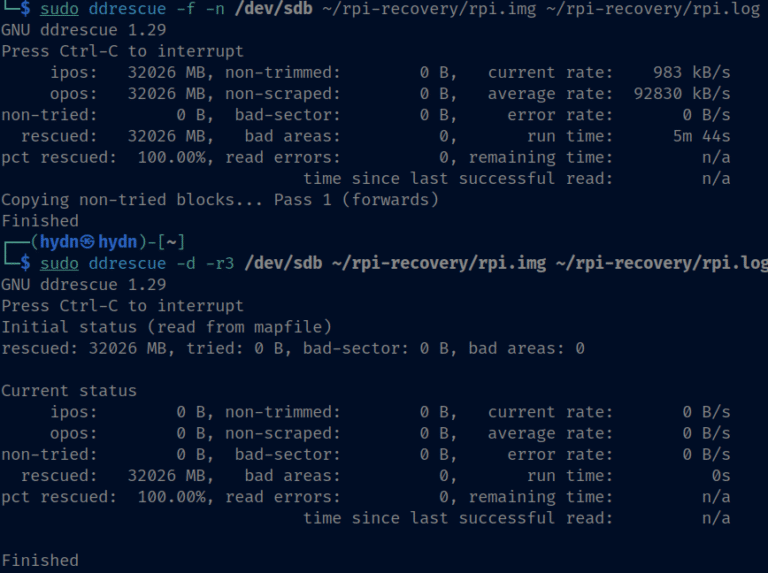The Drupal Association also owns and controls the primary means by which the community communicates and gathers. We organize DrupalCons and manage Drupal Slack. We issue The Drupal Association Newsletter and TheWeeklyDrop (together with Bob Kepford). We control and manage Mastodon, X/Twitter, YouTube, LinkedIn (Drupal, Drupal Association, Drupal Jobs), Facebook, Instagram, and TikTok.What the trademark does not allow him to do is to block any person or organization from using any component of Drupal core or any modules housed on Drupal.org. Those decisions are the sole discretion of the Drupal Association. To date, we have exercised this authority in a very limited manner to protect and safeguard the website and its content from attacks and misuse.
The Drupal Association owns and controls important components of the Drupal ecosystem that allow Drupal to be one of the largest independent FOSS projects in the world.
In administering Drupal.org, the Drupal Association controls a number of services, including:
To ensure Drupal’s stability and independence, the project is managed through a well-established, transparent governance system. Dries Buytaert, the Founder and Project Lead, helped design a model that distributes power and prevents any single person or entity — even himself — from making unilateral decisions that could alter the project unexpectedly. The independent Drupal Association oversees Drupal.org and other key infrastructure, free from commercial pressures. This approach ensures that Drupal.org is reliable and creates a fair playing field for all contributors, embodying true open-source leadership.
The Drupal Association is governed by a 12-person Board of Directors that meets several times a year, including two public meetings at DrupalCons. Nine directors are selected by a Nominating Committee of the board and two directors are elected by members of the Drupal Association. The final seat is the “Founding Director”. This is a voting seat that can only be filled by Dries Buytaert. Like all board seats, this is an unpaid, voluntary role that carries with it a single vote on the board. It has to be approved annually by the Board of Directors. Except for the trademark licensing, the Drupal Association has no contracts or agreements with Dries Buytaert or the Drupal Project, and Dries receives no funding from the Drupal Association or its operation of Drupal.org.
The Drupal Association employs a full-time team of 19 professionals located throughout the world. These people include engineers, marketers, accountants, communication staff, and program administration team members. I say all this to demonstrate that we have the capacity to legitimately, and independently, carry out our mission.
Just as the Drupal software has grown and changed significantly over its 23-year history, so has its governance. And, while there’s always room for improvement, it is safe to say that Drupal’s seasoned governance is what allows it to be one of the largest, independent open source projects in the world.
On the technical side, the governance model for Drupal core is very mature, as described in the Drupal Project Governance. Technical decision-making is distributed among the core committers and other maintainers, promoting a transparent, structured, and collaborative approach to managing Drupal core.
Dries Buytaert owns the trademark “Drupal”. He has transparently communicated the Drupal Trademark and Logo Policy by which these are governed. Under the policy, any changes to the policy go into effect sixty (60) days after publication. Dries Buytaert also owns the domain names “drupal.org”, “drupal.com” and “drupalcon.org”.
Twenty-three years ago, Dries chose to release Drupal under an open-source license, inspiring tens of thousands to build careers and champion an Open Web. However, fulfilling this vision required more than just a General Public License. By creating the Drupal Association, setting up Drupal core’s governance, and licensing the trademark, Dries ensured Drupal remained open-source without commercial entanglements, securing a strong, independent foundation.
The Drupal Association owns and/or controls the infrastructure that powers Drupal.org. The Drupal Association has complete control over who accesses Drupal.org, how they access it, and what they can do when accessing it. These are covered by our Terms of Service.
The Summary
- The database of Drupal.org users/project contributors
- A self-hosted GitLab instance that includes all of the Drupal code repositories for core and contrib, testing with GitLab CI and documentation through GitLab Pages
- Drupal software packaging (the actual .zip and .tar.gz files containing Drupal code)
- Drupal Updates (the Updates.xml feed, Automatic Updates endpoint, Secure Signing server, and Packages.Drupal.org- the composer endpoint for Drupal projects).
- The Drupal namespace on GitHub
- The Drupal namespace on Packagist
- The Drupal namespace on NPM
- The Drupal Infrastructure namespace on gitlab.com (separate from our self-hosted instance)
- The contribution credit system
- Usage data about Drupal core and extensions
Dries Buytaert, as the founder and project lead, ultimately guides the direction of Drupal, and is responsible for shaping the project’s philosophy and core principles.
The Detail
Along with Dries Buytaert and many contributors, the Drupal Association is focused on the future of Drupal (see: Starshot Initiative). How can we support its adoption through marketing and create sustainable revenue streams for Drupal to flourish? These are tough questions that confront many open source projects. Our governance allows us to move forward in this work with great certainty.
Many other aspects of Drupal governance are managed by the Drupal Association, which is a U.S. 501(c)3 nonprofit organization formed in 2008 to support the Drupal project and the Drupal community. I am currently the Chief Executive Officer of the Association. Our mission is to drive innovation and adoption of Drupal as a high-impact digital public good, hand-in-hand with our open source community. A fundamental obligation of the Drupal Association is to ensure that Drupal is available to anyone, anywhere in the world free of charge. We primarily accomplish this task through Drupal.org.
Drupal has the Maker/Taker Problem that nearly all open source projects face. There are companies that profit off Drupal who don’t give back to help maintain the project. The Drupal Association has chosen to address this issue by restructuring our Drupal Certified Partner program to focus exclusively on those companies that give back to the community. The goal is to incentivize the creation of a culture of contribution within companies that work in Drupal that provide the Drupal Project with sufficient resources to innovate and grow. There is always work to be done in creating a more equitable program, but it is beginning to work as we have more than doubled the number of Drupal Certified Partners in the past 15 months.
Dries has granted the Drupal Association an exclusive license to use “Drupal”, “Drupal.org”, and “DrupalCon” and a non-exclusive license to use Drupal for non-commercial uses. This license allows the Drupal Association to support the Drupal Project by providing the infrastructure to host and maintain the official version of Drupal and to organize its contributors. It also allows the Association to support the Drupal Community in their work with Drupal.
The Drupal Association is a bona fide non-profit organization (not a pass-through), with assets of just over million and an operating budget of over million. We publish our finances annually (see: Find the reports in the Accountability section of D.org). The Association is not controlled or funded by any single entity nor does it pass revenues onto another entity. The Association’s revenue comes from hundreds of organizations and thousands of individuals. No single financial contributor accounts for more than 10% of our revenue. This diverse support base prevents any one entity from having too much influence.
The net effect of this arrangement is that Dries Buytaert retains ultimate control over what software can be named “Drupal” and what website can be named “Drupal.org.” He can thus ensure that any software that calls itself “Drupal” or website that uses “Drupal.org” conforms with his vision. This would likely cause the Drupal Association to fork the software and maintain it under a new name and url. The high cost of such an action to both parties makes this option highly unlikely and unable to execute quickly.
While Dries started Drupal on his own, he has helped evolve the governance model over the years to be mature and resilient. To help govern the project’s technical aspects, Dries established the core committer team and other supporting groups. To oversee non-technical areas, he co-founded the Drupal Association. These initiatives were intentional efforts to scale and strengthen Drupal’s governance.

